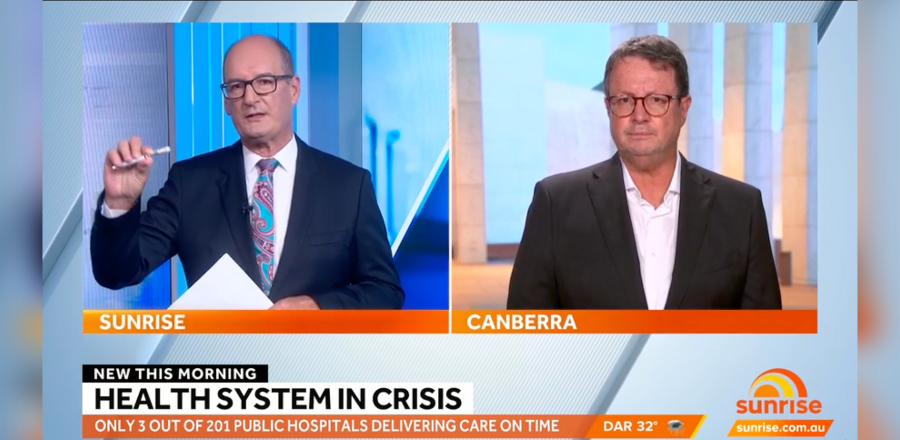Public hospitals in logjam as performance worsens
The findings of the AMA’s new report on hospital performance are “shocking” and the AMA urges Australians to contact their local MPs so state and federal governments can hear their voices loud and clear.

The findings of the AMA’s new report on hospital performance are “shocking” and the AMA urges Australians to contact their local MPs so state and federal governments can hear their voices loud and clear.
A new AMA report shows that the logjam in Australia’s public hospitals has gotten worse with continuing staff shortages, increased ambulance ramping, emergency departments overwhelmed and a critical shortage of hospital beds.
AMA President Professor Steve Robson launched Australian public hospitals in logjam, which shows just three out of 201 public hospitals received a “green light” for emergency department and essential surgery performance.
“When National Cabinet sits down on Friday we want ministers to tackle the backlog of surgeries that we estimate will top half a million at the end of June because it is devastating for every person waiting and dealing with months and months of pain,” he said in the Guardian.
“It’s unlikely hospitals will be able to expand their capacity to address this backlog if there is no intervention.”
“We are calling for a new national plan funded by all governments, but with an upfront payment provided by the Commonwealth to support state and territory governments to expand their hospital capacity, including the workforce, to address the elective surgery backlog.”
Professor Robson said the AMA had been calling on the federal government to increase its share of hospital funding from 45 to 50 per cent and to remove the annual cap on activity.
Australians can enter their postcodes into the AMA’s hospital logjam finder to see how their hospital is performing.
“The AMA’s logjam finder is the only place national hospital data is presented in this way and we are asking people to tell us their stories and email their MPs so state and federal governments can hear their voices,” Professor Robson told Seven’s Sunrise.


